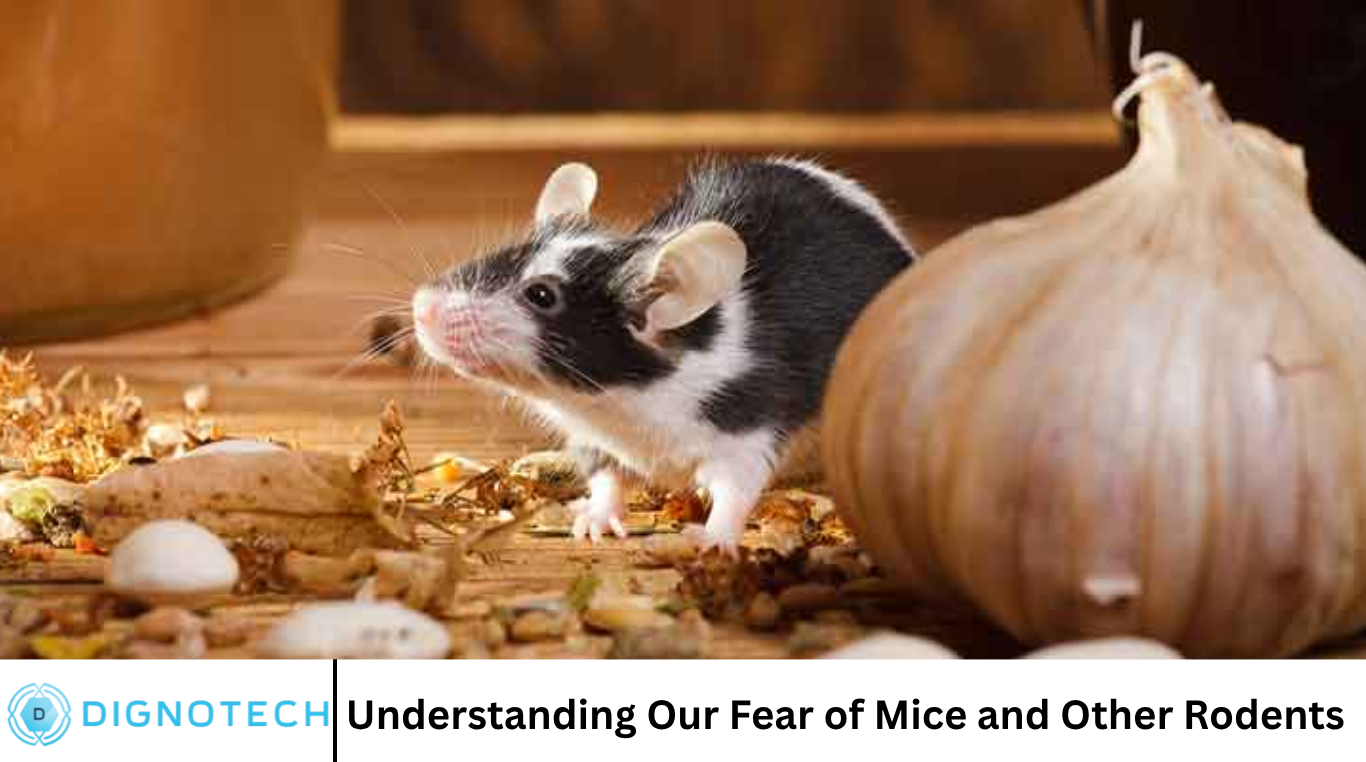Understanding Our Fear of Mice and Other Rodents

Fear is one of the most primal and universal human emotions. It has been essential for survival throughout human evolution, helping us avoid danger and threats. Among the various creatures that evoke fear in many people, mice and other rodents hold a unique place.
Though small and often harmless, these creatures trigger a surprisingly strong aversion and anxiety in humans across cultures and ages. But why is that? What drives this widespread fear of mice and other rodents? We will explore the psychological, cultural, and evolutionary factors behind our fear of rodents.
We will also examine how this fear manifests, its impacts, and ways to understand or even overcome it. By the end, you’ll have a thorough understanding of this common but often misunderstood fear.
More Read: 5 Surprising Ways Pornography Sheds Light on Brain Function
The Nature of Fear: An Evolutionary Perspective
Fear is an adaptive mechanism shaped by millions of years of evolution. It prompts us to respond quickly to potential threats, increasing our chances of survival. When it comes to rodents like mice, rats, and other small creatures, our fear often originates in evolutionary necessity.
Rodents as Vectors of Disease:
Throughout history, rodents have been carriers of deadly diseases. The most infamous example is the Black Death (bubonic plague) in medieval Europe, which was spread by fleas carried on rats. Because rodents have been associated with sickness and contamination, humans evolved an aversion to them as a protective instinct.
Size and Movement Triggering Fear:
Rodents are small, quick, and often unpredictable in their movements. This erratic behavior can startle humans and activate the fight-or-flight response. Our ancestors who avoided such unpredictable animals were more likely to stay safe from bites, contamination, and injury.
Psychological and Neurological Roots of Rodent Fear
Beyond evolution, psychological factors deeply influence how we react to mice and rodents.
The Role of Disgust:
Fear of rodents is often accompanied by disgust. Disgust is an emotion linked to avoidance of contaminants and germs. Rodents, due to their association with filth and disease, trigger disgust, which in turn amplifies fear.
Phobias and Anxiety Disorders:
Some individuals develop specific phobias related to rodents, known as musophobia or suriphobia. These phobias involve intense, irrational fear and anxiety that can severely impact daily life. Neurologically, the amygdala — the brain’s fear center — is hyperactive in phobic individuals, causing exaggerated responses to stimuli like mice.
Learned Behavior:
Fear of rodents can also be learned. Children may pick up on adults’ fearful reactions or cultural messages that portray rodents as dangerous or dirty. Personal negative experiences with rodents, such as bites or infestations, can also cement fear.
Cultural Influences on Rodent Fear
Culture shapes how animals are perceived and treated, which influences fear levels.
Rodents in Folklore and Mythology:
Many cultures have myths portraying rodents negatively. For example, in Western culture, rats are often seen as symbols of filth and treachery. In contrast, some cultures regard certain rodents with respect or superstition, such as the sacred rats of the Karni Mata temple in India.
Media and Popular Culture:
Movies, cartoons, and literature often depict mice and rats in a dual manner: cute and harmless (like Mickey Mouse) or sinister and menacing (like the rats in horror films). These portrayals affect how people feel about rodents and can either diminish or heighten fear.
Impact of Rodent Fear on People’s Lives
Fear of rodents can vary from mild discomfort to debilitating phobia, influencing many aspects of life.
Practical Effects:
People afraid of rodents may avoid certain places, like basements, attics, or parks. They may also experience stress over potential infestations or encounter difficulty living in rodent-prone environments.
Mental Health Effects:
Severe fear or phobia can lead to anxiety attacks, insomnia, and social withdrawal. Rodent phobia can be part of a broader spectrum of anxiety disorders.
Dealing with and Overcoming Fear of Rodents
Understanding fear is the first step to managing it.
Exposure Therapy:
Gradual and controlled exposure to rodents or images of rodents, guided by a therapist, can reduce fear over time. This method helps rewire the brain’s response.
Education and Understanding:
Learning about rodents’ behaviors and roles in ecosystems can reduce irrational fears. Knowing that most rodents avoid humans and are not inherently aggressive can ease anxiety.
Safe Pest Control:
Taking proactive steps to prevent infestations through sanitation and professional pest control can reduce fear of unexpected rodent encounters.
The Ecological Importance of Rodents
Rodents are often seen only as pests, but they play vital roles in ecosystems.
Seed Dispersal and Soil Aeration:
Many rodents help disperse seeds and aerate soil through their burrowing activities, contributing to healthy habitats.
Food Source for Predators:
Rodents are a key food source for many predators, supporting biodiversity.
Understanding their ecological importance can foster respect rather than fear.
When Fear Is Useful and When It’s Not
While some fear of rodents is rational and protective, excessive fear can be harmful.
Useful Fear:
Avoiding rodents can prevent bites, disease, and contamination.
Excessive Fear:
Paralyzing anxiety or obsessive behaviors over rodents are detrimental and require intervention.
Frequently Asked Question
Why are mice so commonly feared compared to other small animals?
Mice are often feared due to their fast, unpredictable movements, association with disease, and cultural portrayals as dirty or invasive.
Is fear of rodents inherited or learned?
oth. Evolution predisposes humans to fear potentially dangerous animals like rodents, but individual fear is often reinforced through learning and experience.
Can exposure therapy really help with rodent phobia?
Yes, exposure therapy is a proven method for many phobias, including fear of rodents. It gradually desensitizes the individual to the feared stimulus.
Are all rodents dangerous to humans?
No. While some rodents can carry diseases, many are harmless and avoid human contact. Proper hygiene and pest control reduce risk.
How do cultural differences affect fear of rodents?
Cultural beliefs and media shape perceptions. Some cultures revere rodents, others fear them. These influences affect individual and collective attitudes.
Can children develop fear of rodents without a negative experience?
Yes. Children often learn fears from adults or cultural messaging, even without direct encounters.
How can I prevent rodents from entering my home?
Maintain cleanliness, seal entry points, remove food sources, and consider professional pest control if necessary.
Conclusion
Our fear of mice and other rodents is a complex blend of evolution, psychology, and culture. While rooted in real risks from history, this fear often extends beyond rational boundaries. By understanding why we fear these small creatures, we can manage our responses better, appreciate the ecological roles of rodents, and reduce unnecessary anxiety. Whether mild discomfort or intense phobia, fear of rodents is a universal human experience that reflects our deep connection with the natural world.




